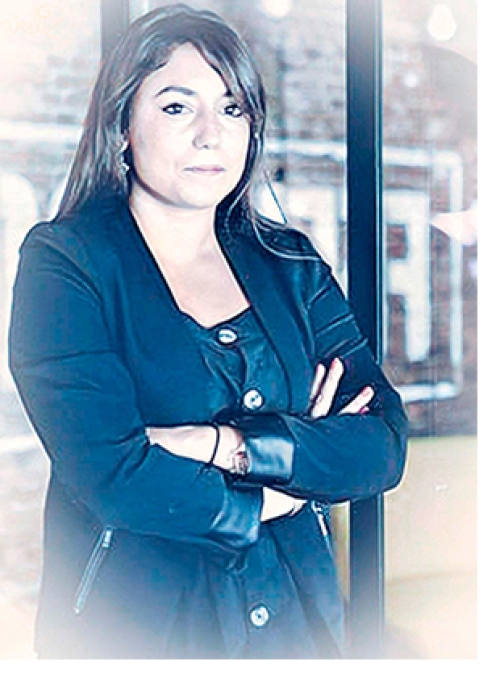-
View article
 #ACT2028
#ACT2028Olivier Gavalda, Chief Executive Officer of Crédit Agricole S.A., explains ACT 2028
2025/11/18
- #Real estate
- 2020/07/31
- 0
-
6
Health crisis: what impact on real estate investment?
After two very good years in 2018 and 2019, the French real estate market could not have had a better start to 2020. But lockdown stopped this momentum in its tracks.
The more or less instant shutdown in real estate activity was unprecedented: for the first time, the wheels suddenly stopped turning. What’s the outlook for the next few months? Is it still wise to invest in bricks and mortar?
We hear from Stéphanie Rossard, Director of Customer Relations and Communication at Crédit Agricole Immobilier.

What can we say about the housing market in the first half of 2020? What’s the market outlook for the second half of the year?
Despite the digitalisation of many processes (virtual viewings, electronic signature of notarised deeds, etc.), lockdown stopped the housing market in its tracks:
- New construction was put on hold until appropriate public health measures could be put in place to allow work to resume, new building permits slowed to a trickle (in a year which, with an election imminent, was never going to be good for building permits in any case) and reservations declined (down almost 30% in the first quarter of 2020).
- In the resale sector, the impossibility of carrying out viewings led to a decline in sales and made it impossible for rental agencies to put empty apartments on the market.
It’s therefore likely that housing market activity in 2020 will not be as good as it was in 2019, which was a record year. While transaction volumes were still very high in June 2020, the accumulated lag between March and May is unlikely to be made up in either the resale or the new homes sector, and this will affect both collective real estate and individual homes:
- Those looking to buy a new home will have less choice in 2020, though there cannot really be said to be a shortage: there were still 80,000 new homes for sale at the end of May.
- In the resale sector, the chairman of national real estate federation FNAIM says the volume of sales is likely to be down by 25-30% in 2020. That said, with almost 800,000 transactions, 2020 should nevertheless still be a “good” year, comparable to 2016.
After screeching to a halt during lockdown, residential market activity picked up very strongly once lockdown was lifted. Whether this trend continues will depend on three key factors:
- Public authorities: to what extent will central government support the housing sector in a climate where other sectors of the economy are also going to need support?
- Consumer confidence: with the economic impact of the crisis about to hit, how will the French view housing in the short-to-medium term? Will the current appetite for bricks and mortar persist?
- Interest rates and financialisation: the slight increase in borrowing rates could adversely affect household solvency. However, borrowing rates are still very low and it’s hard to imagine the ECB hiking its policy rates sharply if it wants to maintain household purchasing power. On the other hand, what stance will banks adopt when it comes to lending policy?

Is property still a safe investment in the current context?
There’s every reason to think property will remain a safe investment over the coming months. Compared with financial markets likely to be shaken by a looming economic crisis, property looks like a secure financial Investment.
Investors’ appetite for various asset classes – for example office space in Paris – shows no sign of flagging.
Housing remains a national cause: past governments have always upheld a policy of providing support for housing, and incentives continue to boost the investor appeal of bricks and mortar.

What about prices?
In the residential market, prices are currently driven by supply and demand, so they are the result of a combination of factors including low supply, low interest rates, strong private demand, government incentives and so on.
With private demand high, the scarcity of both new and resale properties on the market means there’s currently little scope for prices to come down. In fact, initial post-lockdown data suggests just the opposite: property values may have risen slightly over the first half of 2020 (up 3.1% for apartments and 2.3% for houses*).
The impact on prices is still difficult to forecast at this stage. At the very beginning of lockdown, half of French people thought prices would fall; by mid-June, only one third of French people still held that view**.
And what about commercial real estate?
You have to look at this market from two perspectives: investment property and rental property.
Demand for investment property is still very strong, with major property companies continuing to seize opportunities even during lockdown.
While volumes are lower than in 2019, it’s important to emphasise that last year was a record year for commercial property investment (€37 billion). A total of €11 billion was invested in the first half of 2020: that’s one third higher than the average first-half volume over the past ten years***. And we can assume that the rest of the year will be strong, with investment in the full year totalling over €20 billion.
French investors (private individuals, investing through collective real estate investment schemes, and insurers) accounted for the lion’s share of investment in the first half of 2020 (60%), with foreign investment taking a nosedive.
In the rental sector, the post-summer-holiday period in September will be very important in giving a clearer picture of just how well the market is really recovering.

What are the new trends in working life?
The COVID-19 crisis is obviously prompting us to rethink how work is organised and how this might change in the future. Environmental and health concerns (carbon impact, air quality, quality of life at work, etc.) – already priorities for many business leaders – have taken on even greater importance. Lockdown proved that working from home is possible, even in sectors where it didn’t seem especially relevant before the crisis.
Beyond becoming an option for more employees, working from home has demonstrated a number of advantages (less time spent commuting, the ability to continue working wherever you are, etc.), even winning over some of those who had been most resistant to it. While business leaders will now inevitably see working from home as a valid tool in their organisational toolbox, it also comes with some disadvantages that mean it is unlikely to become the norm.
Many employees acknowledge that working from home full-time lowers their concentration and productivity and say they miss the “office banter” that’s so vital to social bonds. We’re therefore likely to see a blend of on-site and remote working, though where the balance will settle is yet to be determined.
The market for office space had already changed significantly over the past few years as flex office space boomed. What services are available, how space can be divided up and how easily such changes can be reversed will probably be key criteria in determining the choices companies make. We’re also likely to see an uptick in the rate at which new coworking spaces are created. Companies are increasingly tending to locate themselves around public transport hubs, close to where their employees live, in new or reconfigured buildings in neighbourhoods offering local shops and amenities.
Following this public health crisis, what’s Crédit Agricole Immobilier’s outlook for urban real estate?
Responding to societal challenges was one of our key concerns before the crisis, and we were already fully aligned with the Group’s raison d’être. For example, over the past few years we’d fleshed out two concepts: “Nature in the City” for urban agriculture projects and “Homdyssée” for upgradeable housing.

We’re keen to go further in the following areas in particular:
- Building inclusive cities and promoting sustainable land use with the aim of making towns and cities more attractive;
- Facilitating access to housing for all and promoting ageing well at home;
- Responding to the environmental emergency by stepping up our initiatives:
o Rolling out the “Nature in the City” initiative across all our developments, whether residential, commercial or operational;
o Building “virtuous” buildings using environmentally friendly materials like hemp in an eco-district in Melun;
o Helping owners and occupiers with issues like certification and making best use of buildings;
o Thinking about the development of “clean” methods (e.g. timber construction) that could enable the Group to further differentiate itself in relation to environmental responsibility;
- Responding to changing behaviours and modes of consumption (new ways of working, inclusive housing, co-living, upgradeable housing, etc.)
All these challenges are causing us to change how we think about and design our real estate projects and encouraging us to work together even more closely to deliver sustainable projects.
Successfully creating a real estate segment within the Group and realising synergies to boost the impact of what we’re doing in these areas would enable us to fully leverage our differentiating factors and create additional value, thus demonstrating that, in the real estate sector too, we’re working in the long-term interests of our customers and society.
*Research by Century 21.
**Research by SeLoger and survey by OpinionWay.
***Source: Knight Frank
-------------------------------------------------
» See other articles in this folder:









